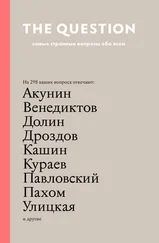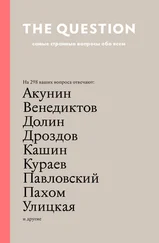As the train was stopping, he licked away the rainbow and munched away the cone. A sliding door opened right before him (“Open Sesame,” he thought). He entered the car and the door closed behind him. “Twenty-two minutes to downtown,” said a sign. The car was empty, except for the man who talked to his hands. Pronek had seen him before: the man gibbering into his palms, his hands supine in his lap, every now and then poking the center of his left palm with his right index finger, pressing a magic button. The clatter and murmur of the speeding train made Pronek drowsy, so he closed his eyes. He heard the hum of his blood, and for reasons not known to us, a rather meaningless sequence of words reached the spawny surface of his mind: “Split my head like a watermelon.” He opened his eyes and saw the new passengers, just materialized around him, inconspicuously surrounding him. The man who talked to his palms was collecting every piece of paper he could find: he would slide under the seats to retrieve a leaflet saying: “Lord is with you”; he would empty McDonald’s bags on the floor, and then fold them up; he would stuff newspaper pages into his trench coat, covered with different shades of filth. Finally, he sat in front of Pronek and began peeling off a Guardian Angels sticker on the window, as if his job were to collect evidence of a vast crime. The man kept refrowning, waves of worries slamming against the inside of his forehead. Pronek watched his long yellow nails with a crescent of gray dirt clawing the sticker, then he panned to the man’s temple and saw (zoom) a louse crawling through the man’s ashen hair.
Split my head like a watermelon.
Downtown Chicago had streets named after deceased presidents, and Pronek thought that it was built as the presidents played monopoly in heaven (or hell, let us not be presumptuous), and then piled up buildings on their streets after a favorable roll of the dice. Pronek went eastward down Jackson to Michigan Avenue, and then walked north, until he found the Boudin French Sourdough Bakery.
A woman, labeled Dawn Wyman by a little steel name tag on her semitransparent shirt, was waiting for him. Her hair was puffed up, as if there was a steady stream of warm air coming out of her skull. Her eyelids were efficiently blue, echoing the hue of her skirt. She had eyeball-shaped earrings, whose quaking pupils glared at Pronek.
“Where are you from?” Dawn asked.
“Bosnia,” Pronek said.
“That’s in Russia, right?”
“It was in Yugoslavia.”
“Right. Well, tell me why you would like to work for us.”
A man with a white cowboy hat was sitting in the corner, under a picture of the first Boudin Bakery, established in San Francisco in the black-and-white times. He was excavating shit-brown spoonfuls of something from a round loaf of bread. Then he determinedly shoved the plastic spoon into his mouth.
“I like European touch here,” Pronek said.
“Right,” Dawn said and routinely smiled. There was a shade of lipstick on her white teeth. “We like to provide something different, something for the customer with sophisticated taste and international experience.”
“Right,” Pronek said.
“What do you think you can offer to the Boudin French Sourdough Bakery?”
The man in the cowboy hat dropped the spoon in the loaf, smacked his lips, then took off his big hat and wiped his melon, with a bulbous wart above the right eyebrow. He put his hat back on, stood up, pulled his pants to the middle of his belly, then emptied the tray into a garbage bin. The loaf slid into the black gaping orifice of the bin, and Pronek heard the whump.
“I can offer hard work and life experience. I am hard worker and I like to work with people. I used to be journalist and communicated very much,” he said.
“Right,” Dawn said, looking at the application, uninterested. “What do you expect your wage to be?”
“I don’t know. Ten dollars for hour.”
“We can offer you five, and maybe later you can work your way up. Here everyone has a fair chance.”
“Good,” Pronek said.
Thus Pronek became a member of the large Boudin French Sourdough family, and was consequently given the respectable and responsible duty of kitchen help.
He cut croissants open, spread Dijon mustard all over their insides (“Not too much,” Dawn would suggest in passing), and then pass them on to the sandwich person (“This is the sandwich person. This is the kitchen help,” Dawn introduced them to each other). He was taken off that job, after he nearly sliced off his left thumb and passed on a sequence of blood-soaked croissants to the sandwich person. He would cut tomatoes into thin slices (“Thinner,” Dawn would suggest in passing), and he would sprinkle cheese crumbles over a platoon of mini-pizzas. He would fill up styrofoam bowls with the reduced-sodium, fat-free Cajun gumbo soup, and pass them on to the soup person, until he dipped his incised thumb into a scorching jumbo gumbo (“Small bowl — large gumbo. Big bowl — jumbo gumbo,” Dawn succinctly explained the essence of the gumbo situation), whereupon he dropped the bowl on the floor, earning a couple of burns on his ankles. He would cut off the top of a sourdough loaf, and then disembowel it, throwing the soft yeast-smelling viscera into a garbage can, feeling dreadfully guilty for some reason, so he ate a lot of it the first day, and received gut-wrenching cramps as a punishment. Then he would fill up the hollow with reduced-fat chili.
The first time he went to the safe-like Frigidaire to get a lettuce head, the doors closed slowly behind him and he found himself in the midst of an immutable gelid hum, feebly lit by a solitary bulb. He imagined freezing to death, being found frosted, his eyes wide open, minuscule icicles on his eyelashes, lying with his pate stuck in a crate of lettuce. He began pounding the door, yelping for help, but no one was out there, no one could hear him. He leaned his head against the door in moribund desperation, and his forehead stuck to the icy surface. He tried to peel it off, but it was painful and he was overwhelmed by fatalistic weakness.
So when Dawn opened the door, he stumbled out, his forehead pulled by the force of Dawn, and then stood before her with a scarlet mark across his forehead.
“What are you doing?” she asked, her plucked eyebrows rising into two symmetrical nail clips.
“I was closed there,” Pronek said.
“You can open the door from the inside, you just have to push it a little,” she said.
“Oh, I know,” Pronek said and hastened toward the safety of dish-washing duties.
From that point on in his food-service career, Pronek was firmly in charge of garbage disposal. He became an apprentice to a man named Hemon. Pronek didn’t know whether Hemon was the man’s first or the man’s last name, but he was from the Dominican Republic, and came to the United States to become a professional soccer player. Pronek inferred Hemon’s soccer dream, after he pointed at himself and kept repeating: “McMannaman,” and then made the motion of kicking a soccer ball. Hemon was tall and, Pronek thought, not particularly intelligent, although he would say nothing, since he spoke no English. They would empty abandoned trays with hollowed-out loaves, mauled croissants, desiccated bowls, into garbage bins; they would pull out loaded garbage bags, tie a knot around the bag’s throat and drag them like corpses (“Hurry,” Dawn would suggest in passing) to the garbage cart in a back nook of the kitchen. Pronek would push the cart with Hemon, who did it with habitual despondency, down the hall beyond the kitchen, through the mean swinging doors that would always slam their backs or heels, then wait for the elevator. There was a little camera above the door, glaring down at them. They would stare at the elevator door in silence, waiting for it to slide open. They would press the lowest button and stand by the garbage, separated by the cart, as if they were honorary guards saluting an important casket. They would go all the way to the bottom, sinking into the molasses of silence, and when the door would slide open, a billow of cold, putrescent air would slap their faces. They would push the cart into a low-ceilinged grotto with a humongous garbage container, often brimming over with the black garbage bags, in its center.
Читать дальше












